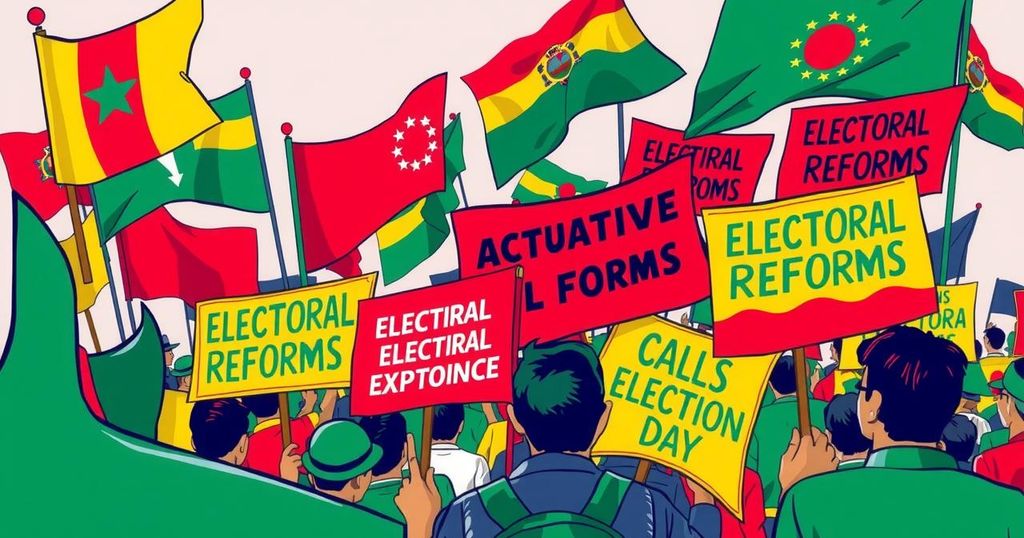Trump Administration Conducts First Self-Deportation Flight for Migrants
The Trump administration’s first self-deportation flight has returned 68 migrants to Honduras and Colombia. Participants received financial support for their return, but experts predict limited demand. Migrants report increasingly difficult conditions in the U.S., as official deportations decline compared to last year.
In a significant move, the Trump administration has facilitated the first self-deportation flight consisting of 68 migrants, returning them to their home countries of Honduras and Colombia. This flight, which took off on Monday, marks the government’s initial foray into what it describes as voluntary repatriation. The migrants received a financial incentive in the form of $1,000 debit cards from the U.S. government as they embarked on this journey home.
Among the returned migrants are thirty-eight Hondurans, which included nineteen children, who landed in San Pedro Sula, a major city in northern Honduras. This initiative is part of a broader promise made by President Trump during his campaign, emphasizing a commitment to increased deportations. However, experts caution that the self-deportation offer might not attract a large number of participants, having limited appeal to those considering returning voluntarily.
The administration’s self-deportation program arrives at a time when high-profile migrant detentions are occurring across the United States. Concurrently, the U.S. has reportedly transported several hundred Venezuelan migrants to a high-security facility in El Salvador. This context raises questions about the possible efficacy and attractiveness of the self-deportation program amid stricter immigration enforcement.
Kevin Antonio Posadas, a migrant who spent three years living in Houston, shared his perspective on the program. He was among those who had contemplated returning to Honduras prior to the announcement of the self-deportation offer. “I wanted to see my family and my mom,” Andy explained. He praised the ease of the process, mentioning the convenient application system through the CBP Home app. “You just apply and in three days you’ve got it,” he said. For Posadas, the program presented a helpful option for those considering leaving, allowing them to save on airfare.
Homeland Security Secretary Kristi Noem outlined the program’s details, stating, “If you are here illegally, use the CBP Home App to take control of your departure and receive financial support to return home. If you don’t, you will be subjected to fines, arrest, deportation, and will never be allowed to return.” The Department of Homeland Security confirmed that an additional twenty-six migrants were sent to Colombia as part of this inaugural flight.
Additionally, Antonio Garcia, the Honduran deputy foreign minister, expressed the government’s commitment to assist the returning migrants. He indicated that each would receive $100 in cash and a $200 store credit for essential goods. Notably, four children who arrived in Honduras were born in the U.S. Garcia revealed that the returning individuals conveyed sentiments of increasing challenges concerning their status in the U.S., noting the hostile environment and mounting fears related to their employment.
Wilson Paz, the Honduran immigration director, revealed that deportations have decreased this year compared to last year, with 13,500 deportations to date, a decline from over 15,000 during the same timeframe in 2022. “I don’t think it will be thousands of people who apply for the program,” he observed, emphasizing the need for orderly migrations and support for those returning.
The Trump administration’s recent self-deportation flight aims to offer a voluntary option for migrants to return home, yet experts predict limited appeal for the program. With financial incentives provided to participants, the effectiveness of this initiative remains uncertain, particularly as the administration continues to enforce strict immigration measures. The experiences of returned migrants suggest an environment that has grown increasingly challenging for undocumented individuals in the United States, potentially complicating their future decisions regarding migration.
Original Source: www.independent.co.uk




Post Comment